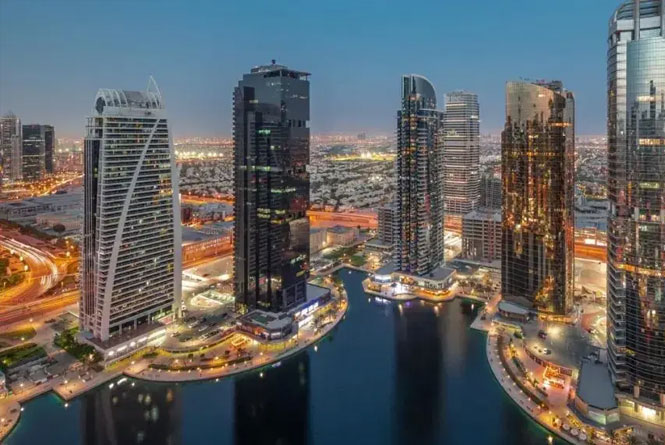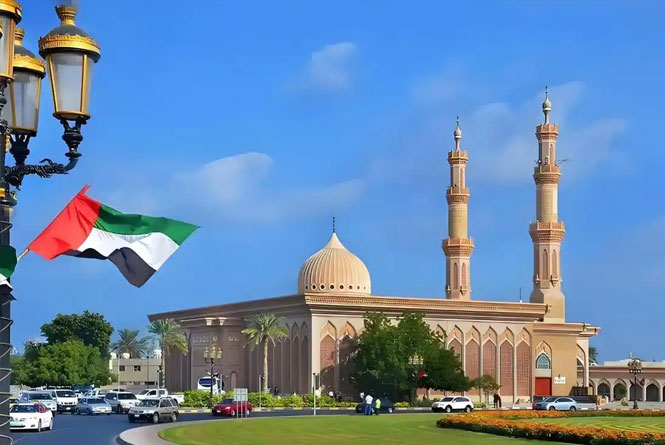Setting up a business in Dubai represents a strategic move into a dynamic, globally connected economy. While the Department of Economic Development (DED) is the primary licensing authority for mainland businesses, the Dubai Municipality company registration process plays a critical and often mandatory role, particularly concerning operational location, health and safety, and specific activity approvals. Understanding this integrated process is vital for a smooth and compliant business setup. This comprehensive guide explores the essential facets of company registration in Dubai, focusing on the crucial involvement of Dubai Municipality.

The journey to establish a mainland company in Dubai involves a coordinated effort between key government entities. The Department of Economic Development (DED) is the central authority responsible for issuing the primary trade license, approving your chosen business activity, and formally registering your company within its commercial registry. This license is your fundamental permission to operate.
However, Dubai Municipality company registration steps become crucial immediately after, primarily concerning your business's physical presence. For most businesses requiring an office, warehouse, or retail/storefront location within Dubai (excluding free zones), obtaining initial approvals and the final trade license is contingent on Dubai Municipality's input:
Initial Approval: Part of the DED process involves obtaining an "Initial Approval," which often requires a preliminary green light from relevant government entities, including Dubai Municipality, indicating potential feasibility based on your activity and proposed location.
Tenancy Contract Registration (Ejari): Before your final DED trade license is issued, you must have a legally binding lease agreement for your business premises. This contract must be registered with the Real Estate Regulatory Agency (RERA) through the Ejari system. Ejari registration is a fundamental requirement enforced by Dubai Municipality and is intrinsically linked to obtaining utility connections and your final license.
Location Suitability: Dubai Municipality zoning regulations dictate where certain business activities can operate. Their approval ensures your chosen premises align with land use plans.
Keywords: Dubai Municipality company registration, company registration in Dubai, trade license, business activity, Department of Economic Development (DED), Ejari, tenancy contract, mainland Dubai
Beyond the foundational Ejari registration, Dubai Municipality company registration often involves obtaining specific permits or No Objection Certificates (NOCs) tailored to your business activity. These are not part of the core DED license but are mandatory operational permits enforced by the Municipality:
Health and Safety Permits: Crucial for businesses like restaurants, cafes, food processing, clinics, salons, spas, gyms, childcare centers, and any activity involving public health or hygiene. This involves rigorous inspections of premises, equipment, waste management, and staff hygiene certifications.
Public Health Permits: Specifically for food-related businesses (F&B), covering everything from food storage and handling to preparation and service. Obtaining a food license from Dubai Municipality is non-negotiable for F&B operations.
Environmental Permits: Required for businesses dealing with chemicals, waste management (hazardous or non-hazardous), manufacturing with emissions, or any activity potentially impacting the environment. Dubai Municipality enforces strict environmental regulations.
Signage Permits: Any external signage for your business premises requires explicit approval and a permit from Dubai Municipality. Regulations cover size, placement, lighting, and design to maintain urban aesthetics and safety.
Construction/Modification Permits: If your business setup involves building, renovating, or significantly modifying your leased premises (like creating partitions, changing layouts), you will need permits from Dubai Municipality's Planning and Development Department.
Activity-Specific NOCs: Some niche business activities might require unique NOCs. For example, a business involving specific types of machinery or storage might need an additional safety NOC.
Failure to obtain these necessary permits after securing your DED trade license can result in fines, operational shutdowns, or even license cancellation. They are integral to the broader company registration in Dubai compliance framework.
Keywords: Dubai Municipality company registration, business activity, NOC (No Objection Certificate), health and safety permit, public health permit, environmental permit, signage permit, food license, trade license, company registration in Dubai
As highlighted earlier, Ejari is not merely a formality; it is the cornerstone linking your trade license to your physical location and Dubai Municipality's oversight. Here's why it's central to Dubai Municipality company registration:
Mandatory for License Issuance: The DED will not issue your final trade license without a valid Ejari certificate. It's a non-negotiable prerequisite.
Utility Connections: You cannot open a commercial electricity or water account (DEWA) for your business premises without presenting the Ejari certificate. Dubai Municipality's infrastructure management relies on this verified tenancy.
Legal Protection: Ejari registration standardizes lease contracts and provides a legal framework recognized by Dubai courts, protecting both landlords and tenants.
Municipality Database: Ejari feeds into Dubai Municipality's systems, allowing them to associate your company registration, trade license, and physical address accurately for regulatory and service purposes (like waste collection fees based on location and activity).
Visa Processing: Applying for employee residency visas often requires proof of business premises, with Ejari being a key document.
The Ejari process, facilitated by RERA (a Dubai Land Department entity), is a vital step overseen by the broader regulatory environment that includes Dubai Municipality, making it inseparable from the overall company registration in Dubai journey for mainland entities.
Keywords: Ejari, tenancy contract, Dubai Municipality company registration, trade license, DEWA, RERA, company registration in Dubai, business premises

Company registration in Dubai involves various fees payable to different government entities. Dubai Municipality levies specific charges that are part of the overall setup and operational costs:
Ejari Registration Fee: A standard fee is payable when registering your commercial tenancy contract through the Ejari system.
Permit Fees: Each specific permit (health, food, signage, environmental, etc.) obtained from Dubai Municipality carries its own application and issuance fee structure. Costs vary significantly depending on the permit type, business size, and complexity.
Municipal License Fees (Often Bundled): While the core trade license fee is paid to the DED, Dubai Municipality often charges an annual fee associated with the license, sometimes included in the DED renewal payment or invoiced separately. This fee contributes to municipal services.
Waste Management Fees: Businesses are typically charged annual waste disposal fees by Dubai Municipality based on their location, type of activity, and premises size.
Inspection Fees: Some permits may require periodic inspections by Dubai Municipality officials, which can incur fees.
Violation Fines: Operating without the required permits or violating municipal regulations results in substantial fines.
Budgeting accurately for these Dubai Municipality company registration and ongoing compliance fees is essential for financial planning. They are recurring costs beyond the initial DED license fees.
Keywords: Dubai Municipality company registration, Ejari fee, permit fees, municipal license fee, waste management fee, inspection fees, violation fines, company registration in Dubai, trade license
Dubai Municipality company registration isn't a one-time event; it's the beginning of an ongoing relationship. Maintaining compliance is critical for uninterrupted operations:
Permit Renewals: Most permits (health, food, signage, etc.) have validity periods, typically one year, coinciding with your trade license renewal. They must be proactively renewed, often requiring re-inspection.
License Renewal Integration: The renewal of your DED trade license is contingent on having all required Dubai Municipality permits current and valid. Non-compliance with Municipality regulations will block your DED license renewal.
Regular Inspections: Dubai Municipality conducts scheduled and unscheduled inspections for businesses under its purview (especially F&B, health, and safety-related activities) to ensure continued adherence to regulations. Being inspection-ready is crucial.
Regulation Updates: Dubai Municipality regulations evolve. Businesses must stay informed about changes affecting their business activity (e.g., new sustainability requirements, updated health codes, modified signage rules).
Reporting Changes: Significant changes to your business operations, premises layout, or core activity may require notifying Dubai Municipality and obtaining new permits or amendments.
Waste Management Compliance: Adhering to Dubai's strict waste segregation and disposal rules is mandatory and enforced through inspections and potential fines.
Proactive management of these ongoing requirements is vital for the long-term success and legal standing of your business in Dubai. Neglecting Dubai Municipality company registration compliance obligations can have severe consequences.
Keywords: Dubai Municipality company registration, trade license renewal, permit renewal, compliance, inspections, regulations, business activity, waste management, company registration in Dubai
Understanding the distinction between Free Zones and Mainland Dubai is crucial regarding Dubai Municipality company registration:
Mainland Companies: As detailed extensively above, mainland companies operating anywhere within the geographical boundaries of Dubai (outside designated free zones) are subject to Dubai Municipality's regulations, require Ejari for their office/warehouse/store, and need specific permits for their activities. Dubai Municipality company registration procedures are directly applicable.
Free Zone Companies: Businesses established within one of Dubai's many Free Zones (e.g., DIFC, DMCC, JAFZA, TECOM) operate under the regulatory authority of that specific Free Zone. While physically located in Dubai, their primary regulatory interface is with their Free Zone authority. They typically:
Do not require Ejari registration (tenancy is handled directly with the Free Zone).
Obtain their trade license and activity permissions from the Free Zone authority.
May be subject to some Dubai Municipality regulations, particularly concerning:
External Signage: Permits from Dubai Municipality are usually still required for any signage visible outside the Free Zone perimeter.
Environmental Regulations: Compliance with broader Dubai environmental laws may apply.
Specific Activities: If a Free Zone company operates a branch outside the Free Zone in mainland Dubai (e.g., a retail store), it becomes subject to standard Dubai Municipality company registration requirements for that location (Ejari, permits, etc.).
Goods Entering Mainland: Customs clearance and adherence to Dubai Municipality standards (e.g., food safety inspections) apply when goods move from a Free Zone into the UAE mainland market.
Therefore, while Free Zones offer a streamlined regulatory process internally, Dubai Municipality company registration requirements still intersect, especially concerning external visibility, environmental impact, and operations extending into mainland Dubai.
Keywords: Dubai Municipality company registration, mainland Dubai, Free Zones, Ejari, trade license, business activity, regulations, signage permit
Establishing a thriving business in Dubai requires navigating a well-structured but multi-faceted regulatory landscape. While the DED issues the core trade license, Dubai Municipality company registration processes are fundamental to ensuring your business operates legally, safely, and sustainably within the emirate. From the essential Ejari registration anchoring your physical location to the critical activity-specific permits (health, food, environment, signage) and ongoing compliance obligations, Dubai Municipality plays an indispensable role.
Understanding these requirements from the outset – budgeting for the associated fees, planning for inspections, and prioritizing timely renewals – is not just about avoiding fines; it's about building a reputable, resilient business. Whether you opt for the flexibility of the mainland or the tailored ecosystem of a Free Zone, being aware of how Dubai Municipality regulations apply to your specific business activity is paramount. By diligently addressing all aspects of company registration in Dubai, including those mandated by Dubai Municipality, you lay a solid foundation for long-term success in this dynamic global hub. Seeking guidance from experienced business setup consultants can significantly streamline this complex journey.










Zhuoxin Consulting relies on its Chinese service network and Dubai executive team to provide professional one-stop business services without communication barriers for Chinese companies to enter the Middle East market. Its business covers company establishment and maintenance, accounting and taxation, bank account opening, PRO services and business services.
Zhuoxin Consulting has high-quality business resources and maintains close cooperation with many free zones, bankers and tax departments in the UAE to escort your expansion in the Middle East market.
 Add WeChat
Add WeChat